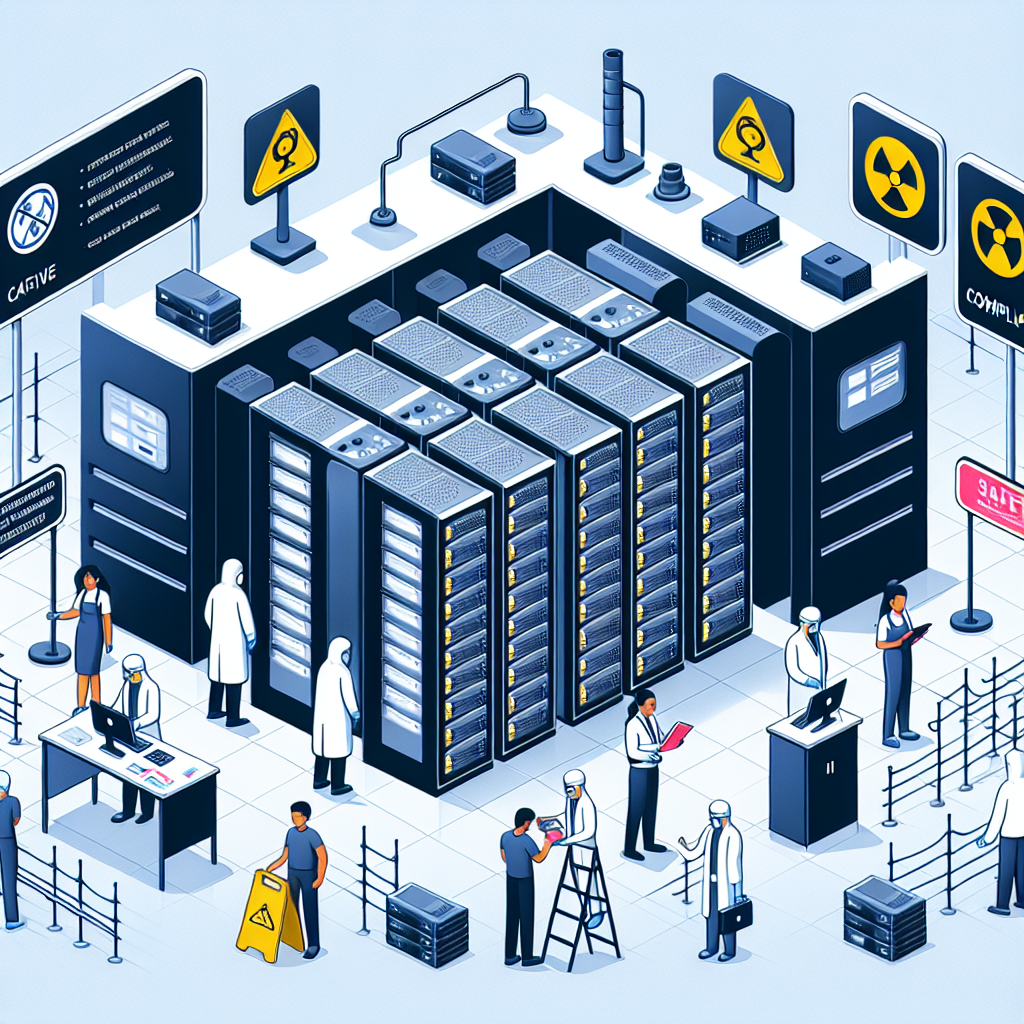Data centers are essential facilities that house critical IT infrastructure for organizations. Ensuring the safety and security of data center facilities is crucial to protect sensitive data and maintain business continuity. Data center safety regulations and compliance requirements help to establish standards and guidelines for maintaining a secure environment.
Understanding data center safety regulations and compliance requirements is essential for data center operators and facility managers to ensure that their facilities are in compliance with industry standards and regulations. Compliance with safety regulations also helps to mitigate risks and prevent accidents that could lead to data loss or service disruptions.
One of the key regulations that data center operators must adhere to is the Occupational Safety and Health Administration (OSHA) regulations. OSHA sets guidelines for workplace safety and health standards to protect employees from hazards in the workplace. Data center operators must ensure that their facilities comply with OSHA regulations to provide a safe working environment for employees.
In addition to OSHA regulations, data center operators must also comply with industry standards such as the National Fire Protection Association (NFPA) codes and standards. NFPA codes and standards provide guidelines for fire protection and prevention in buildings, including data centers. Data center operators must implement fire prevention measures such as fire suppression systems, smoke detectors, and fire alarms to protect the facility from fire hazards.
Data center operators must also comply with building codes and regulations set by local authorities to ensure that their facilities meet safety requirements. Building codes cover various aspects of building safety, including structural integrity, electrical systems, and emergency exits. Data center operators must ensure that their facilities meet building code requirements to prevent accidents and ensure the safety of occupants.
In addition to safety regulations, data center operators must also comply with data privacy and security regulations such as the General Data Protection Regulation (GDPR) and the Health Insurance Portability and Accountability Act (HIPAA). These regulations require data center operators to implement security measures to protect sensitive data and ensure compliance with data privacy laws.
To ensure compliance with safety regulations and compliance requirements, data center operators should conduct regular safety audits and inspections of their facilities. Safety audits help to identify potential hazards and risks in the facility and allow operators to implement corrective measures to address safety issues.
Overall, understanding data center safety regulations and compliance requirements is essential for data center operators to ensure the safety and security of their facilities. Compliance with safety regulations helps to mitigate risks, prevent accidents, and protect sensitive data stored in data centers. By adhering to industry standards and regulations, data center operators can maintain a secure environment for their IT infrastructure and ensure business continuity.


Leave a Reply